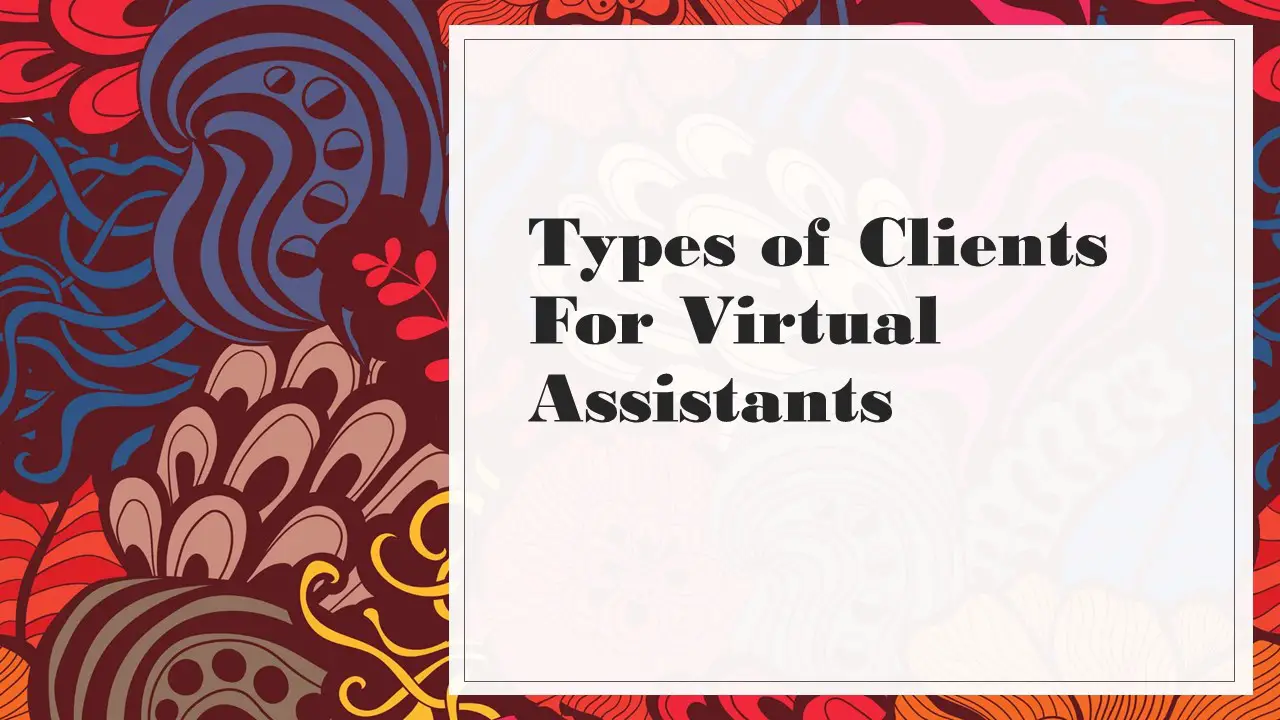When you start offering your services as a virtual assistant, there are many different types of clients you can target. These include entrepreneurs and business owners, small business owners, and online business owners.
These three types of clients are likely to need your help with a variety of tasks. They are also likely to be looking for a VA who is organized, has good communication skills, and is detail oriented.
Entrepreneurs and Business Owners
If you are looking to find work as a virtual assistant, one of the types of clients you might want to consider is entrepreneurs and business owners. These clients have a high level of expertise and can often benefit from help with marketing, sales and customer service.
Entrepreneurs are risk takers who rely on their creativity to come up with new products and services. They typically study the competition and make changes to their product or service based on feedback from customers.
They are also very flexible and able to respond quickly to changes in the market. They have a vision that extends far into the future, which means they can see where their business will be in years to come.
Using social media to promote their products and services is a great way for business owners to reach potential customers. A social media VA can help them with posting content, optimizing their profile description, and creating a brand image for their online presence.
Small Business Owners
Small business owners are in charge of running a company, including hiring staff and managing budgets. They are also in charge of marketing and sales to drive revenue.
They are also responsible for customer service, ensuring that customers are satisfied and happy with their product or service. In the early years, they may handle customer questions and support themselves, but as the company grows, it’s common for them to delegate this task to a virtual assistant or call answering service.
VAs can also help businesses with email marketing and content management. For example, a VA could create and upload an email sequence for a client that will increase the likelihood of opening rates, click-throughs and unsubscribes. This can save a small business owner hours of time, which they can spend on other tasks.
Online Business Owners
If you’re an online business owner, you have the freedom to work from home. But you need to do your part to ensure your business runs smoothly.
One way you can help is by outsourcing your day-to-day tasks. Virtual assistants provide a range of services that free up time for business owners to focus on their goals and growth.
Among the most common virtual assistant jobs for online business owners are those related to their website. These include content writing, copywriting and ecommerce.
Another great virtual assistant job for an online business owner is database management. Many small business owners rely on lead generation and have a lot of contact information they need to keep organized.
As a VA, you can help by making sure their data is up to date and relevant, is well-organized and intuitive to analyze. You can also make recommendations to them for the best way to organize their data. This will save them a lot of time in the long run, as they can spend more time working on their product or service.
Individuals
Clients for virtual assistants include individuals who work in a variety of industries and need support from an administrative assistant. These clients are often busy professionals who need assistance in areas such as research, email communication and document management.
In addition to assisting individuals, VAs can also work for businesses. A large number of small business owners, entrepreneurs and online business owners seek out VAs to help them get things done.
The types of jobs that can be offloaded to virtual assistants range from HR, accounting and marketing to customer service and sales. This diversity creates a unique hiring opportunity for VAs.
Regardless of the industry, VAs need to have excellent verbal and written communication skills, be able to work independently and have good time management. They should also be familiar with cloud-based communications technologies like file sharing, password managers and phone and video conferencing. These abilities ensure that they can communicate effectively with their clients and team members.

